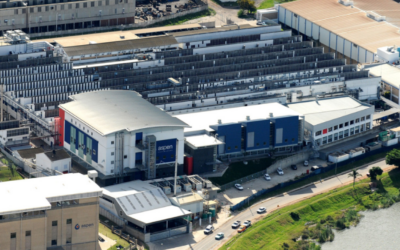Electricity tariffs for municipalities in South Africa increased by an average of 13.07% on the 1st of July, continuing the trend of above-inflation annual price increases of grid-based power. Considering this, as well as the future increases that the National Energy Regulator of South Africa (Nersa) has already approved, finding solutions to become less reliant on the national power grid is becoming crucial for businesses.
This is according to Henri van Eetveldt, Senior Consultant – Solar PV and Energy Storage at Energy Partners Solar – a division of Energy Partners and part of the PSG group of companies – who says that absorbing operating costs becomes exceedingly difficult with each new tariff increase from Eskom.
He adds that in order to remain competitive over the coming years, all South African businesses should have long-term sustainability strategies that include grid-tied renewable energy generation. “We would strongly recommend all companies to consider a grid-tied solar photovoltaic (PV) system to mitigate the impact of the potentially massive tariff increases over the coming years. The payback period for a PV system (which can be installed within three-to-six months) is within a span of three to five years.
“In addition, there are also service providers that can offer renewable energy on the basis of a power purchase agreement (PPA), which means that businesses can gain access to cost-efficient renewable energy without any initial capital outlay.”
Van Eetveldt says that companies who choose to make solar energy a part of their operation, whether it is through a PPA or acquiring their own infrastructure, place themselves in a much better position to control their costs. “Instead of being bound to a state entity that the business has no control over, privately-generated renewable energy enables an organisation to ensure their energy costs remain stable over the long term.”
He emphasises that businesses can no longer remain indecisive about making private energy generation an integral part of their business strategies for the coming years. “This month’s tariff increase is just the latest in a long list of indications that should motivate businesses everywhere to take greater control of their energy supply,” van Eetveldt concludes.




